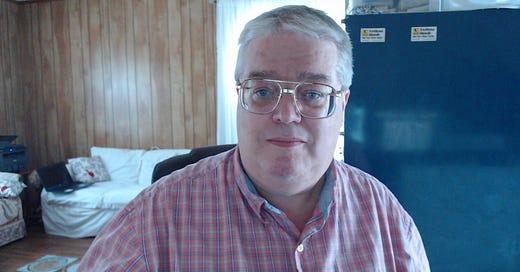Holy Week Begins
As we approach Easter, which will be on March 31 this year, our readings turn from the teachings of Jesus to a clearer description of who Jesus is and what Jesus did for us.
There are many events coming up this week. Please see your insert. Tonight, we have our Sunday Evening Questions Dinner at 6 pm where you can ask questions that may have puzzled you about Christianity or Jesus.
A couple of exciting things happened in the month before Jesus entered Jerusalem that Palm Sunday. About a month before, Jesus and his team of disciples came to the home of Mary, Martha, and Lazarus in Bethany on the east side of the Mount of Olives. Jesus showed up early because he had been told that Lazarus was deathly ill. When Jesus arrived, Lazarus was already dead and in the tomb. He’d been there four days. But Jesus, after speaking with the sisters, went to the tomb and called for Lazarus to come out of the tomb. Amazingly, in front of many witnesses, Lazarus walked out of the tomb. And the word spread back to Jerusalem, which was only two miles away.
This upset many religious leaders in Jerusalem, who were concerned both that Jesus might be practicing dark arts, and who were also concerned that his growing popularity might lead to political problems and even riots, endangering the religious leader’s positions – and upsetting the Romans. And so those religious leaders began to plot about how and when to kill Jesus.
Jesus and his disciples retired to the hill country of Ephraim for a couple of weeks.
Upon their return, they enter the town with Jesus riding on the donkey as our first reading from Mark 11 told us. He then walked through the Temple, where children were still chanting “Hosanna” and “Blessed is the one who comes in the name of the Lord” Some of the Pharisees yelled at them to be quiet. But Jesus just told his critics that if they were quiet, the rocks and stones would start to sing.
It was at this time that the Greeks we mentioned last week came to Philip, asking to see Jesus. Over the next couple of days, Jesus debated both Sadducees and Pharisees in the Temple courts.
On Wednesday evening, they returned to Bethany for a feast given in honor of Jesus and Lazarus, catered by Mary and held at the home of Simon the Leper.
While they were eating, one of the Mary’s comes up to Jesus – the Apostle John tells us that she was Martha’s sister. She took an alabaster pint jar of pure spikenard perfume and poured the perfume on Jesus’ head. The smell of the perfume filled the room.
Judas and some others were aghast at this extravagance, for the perfume could have been sold for 300 days wages – roughly $20,000 in today’s money. “The money could have been given to the poor!” Judas said. But the Apostle John tells us that Judas was most upset because he held the money bag and would embezzle the funds.
But Jesus spoke to Mary’s defense. “Leave her alone. Don’t bother her. She has done a beautiful thing for me. You will always have the poor and you can help them anytime you want. But you will not always have me. Mary has done what she can, pouring perfume on my body to prepare for my burial. Wherever the good news is preached, this story will also be told of her.”
Just as the ancient kings of Israel were anointed with oil to signify their kingship, and Aaron, Moses’ brother was extravagantly anointed with oil when he was consecrated as high priest of Israel, Jesus was anointed with this expensive oil – an entire pint of the most expensive perfume going. He would be both king and high priest. Yes, as the old man Simeon had prophesied when Jesus was an infant and brought to the Temple, Jesus would be the cause of the falling and rising of many in Israel,
And then, the sword that would pierce his mother Mary’s soul was drawn, for Judas was so offended he went to the chief priests of the Temple and offered to betray Jesus to them. They now saw their opportunity and offered to pay Judas money. So he began to watch for an appropriate time to hand him over to them.
On Thursday evening, it was customary for the Passover Lamb to be sacrificed and then a meal held that evening. So a couple of disciples asked him, “Where do you want to hold the feast?”
He sent two of the disciples into the city. “Go and a man carrying a jar of water will meet you. Follow him. Say to the owner of the house that the water bearer goes into: ‘The Teacher asks for a guest room where I may eat the Passover with my disciples?’ He will show you a large room upstairs, furnished and ready. Make the meal preparations for us there.”
The disciples went into the city and everything was just as Jesus had told them. So they prepared the Passover meal.
At that time, the Passover meal was a celebration that had been performed for 1500 years to remember that frightening night when the Angel of Death traveled across Egypt. The Israelites had been told that if they did certain specific things, the Angel of Death would “pass over” their homes. But if they did not do those things, the first born of every household and the first born livestock would die. This was the tenth plague – they had already seen the effects of the first nine plagues.
We will also have a Passover meal on Thursday evening at 6 pm to 8 pm at Cedar Grove wo se can understand the importance of this meal in Jewish culture – and how it became the Last Supper and led to Holy Communion. It will be a family affair, as is common in Jewish circles even today. Bring the children, the infants, and all of the family. It will be a relaxed, laid back dinner, part theater, part singing, part scripture lessons. The kids have their special part and game. That’s Thursday at 6 pm. Bring friends.
Before the meal, the Apostle John tells us that Jesus washed the disciples’ feet, which was normally the job of the most lowly servant, the new guy, because they had walked through dusty, dirty streets where donkeys and cattle and horses and sheep had also walked. It required Jesus to bow down before each disciple and wash that stuff from the streets off the disciples’ feet. Jesus told them that they should also have this attitude of being willing to wash each other’s feet, for it would bless them if they served each other, even by doing the lowest, most undignified tasks. If he would do this, they also should do this.
Then, they sat down at low tables, about a foot off the floor, which was the custom in those days, leaning on pillows and each other and the meal was served. While they were eating, Jesus said, “Truly I tell you, one of you will betray me – one who is eating with me.”
This shocked and saddened the disciples. They each turned to him and said, “You don’t mean me, do you?” Peter, in particular, asked John to find out which one Jesus meant. So John asked Jesus quietly who was the traitor.
Jesus said, “It is the one to whom I will give this piece of bread when I have dipped it in the dish.” Jesus then dipped the bread and gave it to Judas. Satan then entered into Judas. Jesus told him as Judas stood up – “What you are about to do, do quickly.” Judas then went out into the night to meet with the Temple priests and betray Jesus.
Jesus also told Peter that Peter would deny knowing Jesus three times before the rooster crowed.
Then, Jesus took bread and gave thanks to God. He took the loaf of bread and broke it, passing it around. They each took a piece and Jesus said, “Take, eat. This is my body.” This was new – no one had ever said this before.
Then it was time for the third cup of the Passover meal, the Cup of Redemption. He gave thanks to God for the drink, then passed around the cup and all of them drank from the same cup. Jesus said, “This is my blood of the covenant, which is poured out for many.” This was also new. And they must have looked at each other with strange looks.
Jesus then said, “I will not drink again from the fruit of the vine until that day when I drink it new in the kingdom of God.” This took them back to the Old Testament vow of the Nazirite in Numbers 6, like Samson, where a person could vow to complete a task for a period of time or until the task was complete. He would set himself apart for God. He or she must not to eat or drink anything involving grapes, and vow not to have his or her hair cut until his vow was fulfilled. Appropriate to have a man from Nazareth take a Nazirite vow, don’t you think?
Jesus spoke at length that evening. We will discuss some of his teachings that are recorded in John 13-17 on Wednesday evening.
Mark tells us that when they had sung a hymn, probably based on Psalm 118, they went out to the Mount of Olives. There, Jesus would pray, be betrayed and arrested.













Share this post